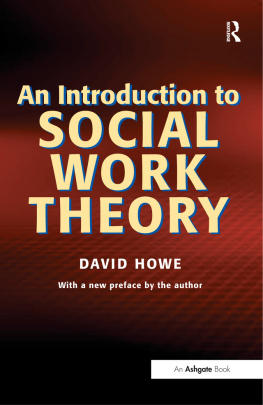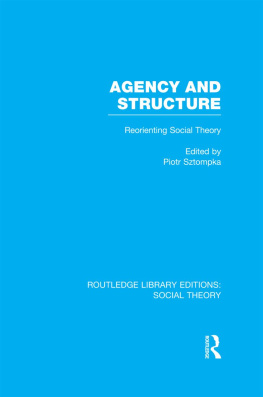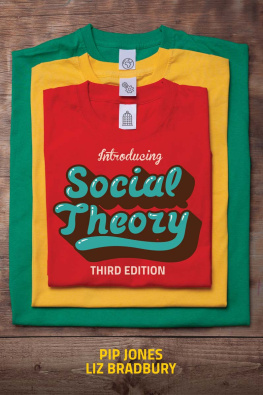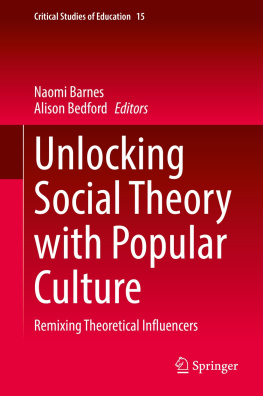First published 1987 by Gordon and Breach Science Publishers
Published 2021 by CRC Press
Taylor & Francis Group
6000 Broken Sound Parkway NW, Suite 300
Boca Raton, FL 33487-2742
1987 by Taylor & Francis Group
CRC Press is an imprint of Taylor & Francis Group, an Informa business
No claim to original U.S. Government works
ISBN 13: 978-2-88124-156-7 (hbk)
This book contains information obtained from authentic and highly regarded sources. Reasonable efforts have been made to publish reliable data and information, but the author and publisher cannot assume responsibility for the validity of all materials or the consequences of their use. The authors and publishers have attempted to trace the copyright holders of all material reproduced in this publication and apologize to copyright holders if permission to publish in this form has not been obtained. If any copyright material has not been acknowledged please write and let us know so we may rectify in any future reprint.
Except as permitted under U.S. Copyright Law, no part of this book may be reprinted, reproduced, transmitted, or utilized in any form by any electronic, mechanical, or other means, now known or hereafter invented, including photocopying, microfilming, and recording, or in any information storage or retrieval system, without written permission from the publishers.
For permission to photocopy or use material electronically from this work, please access www.copyright.com (http://www.copyright.com/) or contact the Copyright Clearance Center, Inc. (CCC), 222 Rosewood Drive, Danvers, MA 01923, 978-750-8400. CCC is a not-for-profit organization that provides licenses and registration for a variety of users. For organizations that have been granted a photocopy license by the CCC, a separate system of payment has been arranged.
Trademark Notice: Product or corporate names may be trademarks or registered trademarks, and are used only for identification and explanation without intent to infringe.
Visit the Taylor & Francis Web site at
http://www.taylorandfrancis.com
and the CRC Press Web site at
http://www.crcpress.com
Library of Congress Cataloging-in-Publication Data
Willer, David.
Theory and the experimental investigation of social structures.
Bibliography: p.
Includes index.
1. Sociology Research. I. Title.
HM48.W53 1986 301.072 86-22758
ISBN 2-88124-156-5
DOI: 10.4324/9781315074801
Contents
- SCIENTIFIC AND EMPIRICIST EXPERIMENTATION
- A CRITICAL EXAMINATION OF THREE EXPERIMENTAL DESIGNS
- THE EXPERIMENTAL INVESTIGATION OF CENTRALIZED EXCHANGE STRUCTURES
- STRONG AND WEAK COERCIVE STRUCTURES
- COERCIVE EXPLOITATION AND COLLECTIVE ACTION
- STRONG AND WEAK HIERARCHICAL EXCHANGE STRUCTURES
- EXPERIMENTAL DESIGN AND PROBLEMS OF CONTROL
- THE APPLICATION OF THEORY TO HISTORICAL CASES
- CONCLUSIONS AND NEW DIRECTIONS
- AUTHOR INDEX
- SUBJECT INDEX
Preface
Since theory is the method of the sciences, social theory can be used to design experiments in sociology. One purpose of this book is to show how experimental designs are produced through the active use of theory. A second purpose is to demonstrate that theoretically designed experiments can address broad scope issues in social theory. Many of the issues addressed here are traced back to the classical theories of Marx and Weber. Must experimental results be limited to the laboratory? To answer that question the theoretic derivations which were experimentally tested are applied to selected historical cases.
The accepted view in the social sciences is that all experimental designs must conform to the statistical designs first put forward by R.A. Fisher earlier in this century. But the Fisher design, in contrast to the much older tradition of theoretically driven experimentation first developed by Galileo, sharply limits the role of theory in experimental work. Only by displacing the Fisher design with designs which are theoretically generated will it be possible to address broad scope issues in an integrated way and produce results which are not limited to the laboratory. In fact, the most important experimental programs in sociology today are theory driven. As programs based on social theory become more widely accepted in sociology, they will move further and further away from the Fisher design and increasingly use theory to design their experiments.
Because it discusses the structure of a working theory, this volume may find use as a text for courses in sociological theory. Because it discusses the application of theory, it may find use as a text for courses in methods. For those uses I should point out that any student who can solve simple equations can read this work. By looking through this work the reader will see an array of network diagrams. The use of these diagrams is an integral part of the theoretic procedures presented here. It has been my experience that both undergraduate and graduate students can learn to read these diagrams and, through that reading, learn to think of social structures dynamically.
I would like to thank the National Science Foundation, Sociology Program for support of the experimental research presented here. The first development of the elementary theory and the early experimental designs were developed jointly with Douglas Heckathorn, and, as a consequence, much is owed to his insight and theoretic rigor. My thanks go to Lee Freese, John Stolte and David James for their critical reading of early parts of the manuscript. Needless to say, all errors are wholly the responsibility of this author.
My thanks also go to Sharon Cox, Karyn Davis, Peggy OConnor and Pat Johnston for typing the manuscript. I am greatly indebted to them for the excellence of their work. My sons Fred and Rob contributed important moral support. Finally, my thanks go to my wife Pat. Because her critical reading of the manuscript and constant support throughout the project were necessary for its completion, the book is dedicated to her.
Introduction
This book is about experimental research and the methods of experimental research. The method presented and used here is not the empiricist method of experimentation which has come to be accepted in sociology and social psychology. No experimental or control groups will be found. Nor is the object of any of the experiments to reject a null hypothesis. On the contrary the purpose is to scientifically investigate a theory. While that aim is by no means a new one, for it is evident that the most important experimental programs in sociology are theory guided, the explicit rejection of Fishers (and Mills) experimental design stands in contrast to its explicit and implicit acceptance in sociology.
Scientific and empiricist experimentation are two fundamentally different methods. The purpose of any scientific experiment is to apply a theory; its design is a consequence of the problem in theory which is being investigated. The purpose of empiricist experiments is to discover findings; their designs are a consequence of the empiric-ists belief in the relative regularity of the world and the statistical interpretation of that relative regularity. The history of scientific experimentation can be traced in an unbroken line back to Galileo. Modern physics and chemistry are excellent examples of theoretic sciences which have been developed through the intensive application of theory in scientific experimentation. The history of empiricist experimentation can be traced back through R.A. Fisher to J.S. Mill. Educational psychology and social psychology are examples of fields which have not developed as theoretical sciences because of their intensive use of empiricist experimentation. Unfortunately, sociology has chosen to follow the latter fields in its view (and frequently in its design) of experiments.







